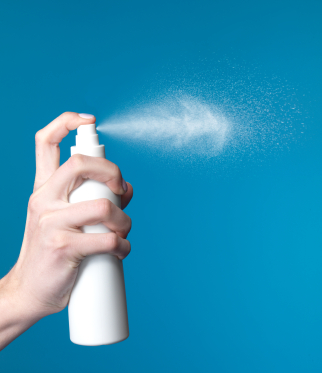|
September 9, 2010
Vol. 3, Issue No. 17
|
A Note from Donya
Hello and welcome to all our new subscribers since the last issue. Now that Labor Day has come and gone, many of you are caught up in Back to School fever, while the rest of us are preparing for the transition into the Fall season - mentally, if not actually. With all the strange and somewhat unpredictable weather we've had this summer, it's anyone's guess when fall (as we know it) will actually arrive!
Since I became an iPhone user a few months ago, I've been using the Weather Channel's app to check and compare the weather in real-time, in various cities around California, the Northwest, and across the country, including Chicago, New York City, and the Gulf coast. The cool thing about this little gizmo is with the touch of my finger I can get a read on what's happening weather-wise in some of my favorite places as well as cities where my family and friends live. What's been really interesting to me lately is how the gap in temperatures around the country has been narrowing, and on a few occasions it's been almost the same give or take 5 degrees!
I'm no meteorologist, but I suspect we may be in for an unseasonably warm Indian summer that in some places could stretch out to late October or even early November. This would certainly challenge our traditional expectations of how fall is supposed to look and feel! It also means more time in the sun for many of us. In keeping with the theme of moderation and sun safety, this week's article looks at some of the simple ways you can protect yourself and your skin from premature aging and the other damaging effects of sun exposure --from the inside out.
Yours in health and prosperity,
Donya
Recommended Products & Specials
POST LABOR DAY SPECIAL
Take $10 OFF any purchase of $35 or more.
Feature Article
Protect Your Skin from the Inside Out: Antioxidants to Counteract the Effects of Sun Damage
There's no shortage of dire warnings about the damaging and cancer-causing potential of unprotected exposure to the sun. While sunscreens and sun blocks do provide protection from sunburn (UVB exposure) and arguably some protection from the long-term effects of UVA exposure, a number of factors can diminish their effectiveness and there's some cause for concern about the accuracy of SPF ratings. As if that weren't bad enough, now many doctors are warning that over-use of sunscreens impedes your body's natural ability to synthesize Vitamin D --a vital nutrient that can protect you from other common cancers like prostate, breast, and colon cancer.
But it's not all bad news out there. There is one promising area of research that doesn't receive much attention from the media but may hold the key to protecting your self and your loved ones from the damaging effects of UV radiation. There's plenty of evidence to suggest that a diet low in saturated or trans fats, supplemented with certain foods and nutrients rich in select vitamins and antioxidants can help protect your skin from the inside out.
Even better, preliminary and ongoing research indicates that many of the antioxidants found in vitamins and botanicals when added to sunscreens AND taken orally -- significantly boost the skin's natural UV-filtering properties while enhancing its defenses against free radical formation.
Here's how it works ... prolonged exposure to sunlight, especially ultraviolet (UV) wavelengths, can induce the formation of Reactive Oxygen Species (ROS), the most potent of which are free radicals that can cause genetic DNA mutations. These DNA-damaged cells then become the precursors for cancerous tumors. An antioxidant-rich diet can neutralize free radicals, counteract the sun's damaging effects, and in some cases even reverse it.
Most of these protective vitamins, minerals, and other nutrients are readily available in the foods you already eat. The ones holding the most promise are Vitamins C and E, the mineral Selenium, and carotenoids like Beta Carotene (the natural form of vitamin A and the source of color in carrots) and Lycopene (the carotenoid that gives foods like tomatoes, watermelon, pink grapefruit, and guava their red and pink color).
While not necessarily antioxidants, Zinc, Copper and Manganese are minerals that support the process of neutralizing free radicals. Glutathione-rich foods like asparagus, avocado, garlic, parsley, acorn squash, zucchini, and tomatoes, can also protect the body from carcinogens.
Two additional promising groups of cancer-preventive antioxidant agents derived from plants --polyphenols and isoflavones-- have also shown favorable results preventing and in some cases, reversing cell damage caused by sun burns.
Here's a brief synopsis of what research has shown about these nutrients so far:
Vitamins C and E
Vitamins C (L-ascorbic acid) and E (composed of tocopherals and tocotrienols) have both been identified as powerful skin protectors. While each has been found effective when taken separately, substantial experimental evidence reveals that combining them synergistically is more effective in suppressing sunburn reactions. It turns out that vitamin C protects vitamin E from the oxidation it undergoes during the process of ending ROS chain reactions, so it actually regenerates vitamin E activity without requiring new additional reserves to get the job done.
Both vitamins were even more effective when applied topically to the skin. In terms of protection, regular topical application of a 10% solution of vitamin C just 30 minutes before exposure reduced incidence of sunburn by 30%. This finding has led to the widespread hypothesis that UV damage may be caused in part by the depletion of the skin's defenses from radiation.
Several studies have documented the photo-protective effects of vitamin E when topically applied to human skin. In addition, the application of vitamin E to the backs of hairless mice immediately after UV radiation reduced sunburn by 40% to 55%.
Selenium
This trace mineral is required for the activity of at least two types of enzymes (Glutathione Peroxidase and Thioredoxin Reductase) and represents a significant portion of cellular defense against oxidative stress in mammals. A number of cellular studies have demonstrated the protective effects of Selenium for UV-induced damage, including DNA damage and lipid (fat) peroxidation.
Zinc
The skin is rich in zinc and it serves as a catalyst for enzymes responsible for DNA replication, gene transcription and RNA and protein synthesis. Several studies with mice showed that zinc can reduce UV-induced sunburn and protect against UV-induced immune system suppression.
Carotenoids
The carotenoids Beta-carotene, Lutein, Lycopene, and Zeaxanthin are potent antioxidants found naturally in green leafy vegetables, carrots, corn, and eggs. Oral carotenoid intake from natural sources or supplements has been shown to significantly reduce susceptibility to sunburn.
In one 12-week study in Germany, two different antioxidant supplements containing carotenoids and selenium were tested for their impact on skin structure and health. Two of three groups of subjects were given different levels of a mixture of beta-carotene, lutein, lycopene, alpha-tocopherol (vitamin E) and selenium. The third group was given a placebo. After the 3 months, the results showed significant improvement in the quality of the skin of the groups that took either form of supplementation while there was no improvement in the placebo group. Another study in Germany examined the photo-protective effects of Lycopene in its natural and synthetic form. Both resulted in a decrease in the reddening of the skin of UV exposed participants (indicating protection from UV damage) but the participants who received the natural form experienced a 38% reduction vs. 25% reduction for the participants who were given the synthetic form.
Genistein
Soy is a rich source of flavonoids called isoflavones, the most plentiful of which is Genistein --a powerful antioxidant. It's been found to provide protection from oxidative damage induced by UV radiation. When administered topically it inhibited skin tumor development by 60-75% in hairless mice.
Tea Polyphenols
Tea is a significant source of ROS-scavenging polyphenols, which make up 30-35% of the leaf's dry weight. Tea polyphenols have been widely studied in animals for their anti-carcinogenic potential. Researchers in both Turkey and the U.S. found that oral or topical administration of polyphenols found in green tea may prevent UV-induced skin tumor development.
So next time you find yourself worrying about what sunscreen product to use to protect yourself, or whether you can trust the manufacturers of those products to make a product that is safe, reach for that bottle of vitamin C instead!
Copyright 2010 Dropwise Essentials
WANT TO USE THIS ARTICLE IN YOUR EZINE OR WEB SITE? You can, as long as you include this complete blurb with it: Donya Fahmy, is a green business owner and the creator of Dropwise Essentials' spa-quality aromatherapy body products that help you safely relieve stress, increase vitality, improve confidence, or simply manage your emotional state any time or place without popping a pill. For more free tips and valuable information visit www.dropwise.com and subscribe to the Dropwise Health & Beauty News Ezine or blog feed.
The Aroma Zone
What's new in the Aroma Zone this week:
 How to Make Your Own Natural Deodorant Spray How to Make Your Own Natural Deodorant Spray
If you enjoy the articles in this newsletter then be sure to visit our blog The Aroma Zone for even more valuable articles, practical tips, and helpful resources on Aromatherapy, Health & Beauty, and Greener & Better Living. You can access the blog any time by clicking on the links to the Aroma Zone found throughout our site. If you don't want to miss anything then you can subscribe to the RSS Feed and all new posts will be sent to you via email.
Please feel free to post comments. Your feedback is always welcome. If you have a burning question about something send it in an email to feedback@dropwise.com.
About Dropwise Essentials
Dropwise Essentials is a San Francisco-based manufacturer of pure aromatherapy and organic plant-based personal care products that give people a safe and effective way to relieve stress, increase vitality, improve confidence, or manage their emotional state any time or place without popping a pill. Our products are:
- Free of synthetic chemicals and petroleum ingredients
- Made with high quality certified organic oils and pure essential oils sourced from around the world
- Packaged in re-usable or recyclable materials
- Hand-made locally in northern California
 Dropwise Essentials was founded by Donya Fahmy, a writer, producer, and consultant whose avid interest in the curative powers of aromatherapy and herbs ultimately led her to design and create the seven products and seventeen unique essential oil blends that make up the current Dropwise product line. She has studied aromatherapy with Carol Schiller - a successful author of several aromatherapy books - and with Dr. Daniel Penoel - a renowned expert in the field of medical aromatherapy. Dropwise Essentials was founded by Donya Fahmy, a writer, producer, and consultant whose avid interest in the curative powers of aromatherapy and herbs ultimately led her to design and create the seven products and seventeen unique essential oil blends that make up the current Dropwise product line. She has studied aromatherapy with Carol Schiller - a successful author of several aromatherapy books - and with Dr. Daniel Penoel - a renowned expert in the field of medical aromatherapy.
Dropwise Essentials is a proud member of the Indie Beauty Network (formerly the Handmade Beauty Network), the Green America Business Network (formerly Co-op America), Green Product Alliance, Natural Ingredient Resource Center, and a Friend of PETA. We were among the first companies to join the Campaign for Safe Cosmetics by signing their Compact for Safe Cosmetics – which simply formalizes our existing commitment to formulate products free of known or potentially toxic ingredients.
|
 Loading... Please wait...
Loading... Please wait...

 Loading... Please wait...
Loading... Please wait...
